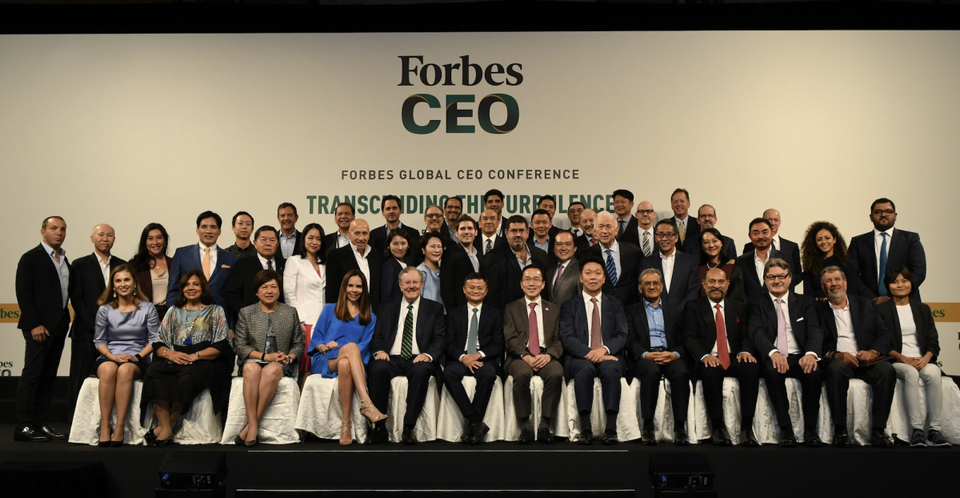
How the role of a CEO is evolving with Technology
20 Mar 2020
It’s a wonder to see how much our world has changed today. The common buzzwords we hear today in corridors, cafes, business centres and enterprises are AI, VR, cloud computing, Robotics, 5G, customer centricity…a far cry from where we were, 10 years, or even 5 years ago. The business landscape has transformed drastically, and along with it, expectations of senior management have also undergone a sea change. And it’s this landscape that makes it all the more challenging for the evolving CEO.
Today’s CEO needs to find ingenious ways to adapt to dynamic situations and at the same time stay true to their own reputation and that of their organization. Reality is that while they make those pivotal decisions to steer the ‘ship’, they are also answerable to stakeholders and their every action has to be measurable as a result. The CEO has to be able to adapt and drive the company forward while factoring in emerging trends influencing the evolving customer in today’s world. Let us look at some of the topical trends impacting the CEO today:
Breakthrough technologies are revolutionizing the way we do business and the way we interact with our customers. According to Jack Ma, the founder of Alibaba Group Holding Limited we can expect to see robots taking on the current role of CEO within the next three decades. If CEOs plan to hold on to their competitive edge, they’ll need to adjust their strategies to include cloud computing and automation as part of their business model.
Quantify what matters to your customer. A customer’s focus is primarily on the accessibility of the product, the product quality, service quality and price. All these make up critical customer journeys. Understanding these journeys helps a business to maintain focus and have a positive impact on long term customer satisfaction. Artificial intelligence, analytical tools and big data can help organizations to filter out what drives customer behaviour, what satisfies the customer and the specific customer behaviour that creates economic value.
In an era where customers can buy anything online, its ultimately the experience that a company can offer, that can make or break brand ambassadors. The most successful consumer businesses today differentiate themselves through signature moments that are directly aligned to their brand.
ShipStation, a Zendesk customer in the US, gains customers’ trust by providing clear and timely support. How did they manage this? In the competitive world of e-commerce shipping, ShipStation continually refreshes its self-service content, ensuring that its knowledge management team creates and curates information that is both accurate and consistent with the company’s voice. Latika Body Essentials is a ShipStation customer. For a business accustomed to receiving 5 to 15 orders in a typical day, Latika Body Essentials suddenly faced the daunting task of fulfilling more than 2,000 orders—an increase of 13,000 percent. But the team at Latika Body Essentials rose up to the challenge; they rented extra warehouse space, hired a crew of six temporary workers, and partnered with ecommerce shipping player, ShipStation to deliver a seamless customer experience.
Refer to: https://www.zendesk.com/customer/shipstation
To quote Ray Wang, the founder of Constellation Research, “If you’re not capturing the consumer’s attention or saving them time, they’re just not interested.” How can brands generate loyalty in a “post-sale, on-demand, attention economy”? One answer is mass-personalisation. By understanding the context of the consumer – e.g. factors like their identity, location, and sentiment – brands can reach out in a more relevant way. Second is the ability to give choices, which is increasingly important in a digital world. Uber and Amazon have set high expectations. They understand the customer’s context based on which they anticipate what the customer will do in the future.
Today’s CEO needs to think far beyond sales to achieve success. The actual purchase decision is made only after several searches online and through word of mouth. When the customer walks into a store, he has already decided what he wants to purchase. So the optimum management of inventory is critical to make the buying process flawless.
Physical stores need to extend far beyond a brick and mortar set up- to offer an ‘experience’ that aligns with the brand’s ethos. This is where the CEO has to lead, to be able to contextualize the next best action for an individual customer based on their data, preferences, and behaviour. This in turn will gain the customer’s trust.
Look at non-traditional disruptors such as Uber or Airbnb who were providing omni-channel experiences before they even became a thing. This is because these brands evolved out of a specific customer need in the first place. As a consequence, they are leading the way in providing dynamic and purposeful experiences that traditional companies need to replicate if they want to sustain.
According to Dawn Anderson, Global Omnichannel lead for Accenture, “If you believe in the notion that trust is the new digital currency, the human component becomes even more important. That is what is differentiating the Ubers and the Airbnbs.”
Today, every organization’s number one goal is to become customer centric and the race is only heating up. Today’s customer is smarter than before and he already knows about your products and services based on self-help tools, online research or word of mouth. This is where the CEO’s role comes into play to help determine which factors are the most critical to their customer’s journey and experience.Star Squared PR, a leading PR agency in Mumbai has been working closely with CEO’s to help them in their reputation management.
It is also equally important to cultivate a customer-first culture within your entire organisation by ensuring that the company’s values and mission statement are tied in with the brand. Rather than provide mere lip service, the CEO needs to embody these qualities every step of the way.
Truth is that we are today in the midst of a dynamic world that is constantly evolving. The new age CEO needs to be cognizant of this fact and be ready to adapt as the situation demands. It is also no secret that the customer is firmly seated in the driver’s seat and companies must learn to shape their businesses around the customer’s needs and demands. No surprise then that the writing on the wall is clear for every CEO, ‘Adapt to stay relevant’.



